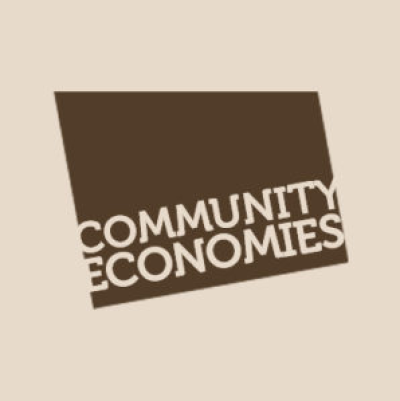Liviana Conference Plenary now online

The plenary address by Katherine Gibson for the inaugural CERN Liviana Conference is now available online (on YouTube) by clicking here.
In the plenary, entitled Thinking with Community Economies, Gibson explored some of the ways that community economies scholars are thinking with and alongside others in order to strengthen opportunities for ethical economic actions, and she did this by focusing on two threads of community economies thinking.
The first thread was concerned with measurement and policy, reflecting the importance that community economies thinking places on a politics of language (associated with making things visible, and naming and categorising things) as a means to social transformation, including the types of transformations that can be supported by government policies.
Gibson used a series of examples to illustrate the potential for measurement to shape policies, starting with the research by Lucie Sovová on urban gardening in Brno, Czechia which measured how much food was produced by urban gardeners and tracked what happened to the crops produced from people’s unpaid gardening activity.
Gibson proposed that such exercises in measuring unpaid and non-monetary activities could be incorporated into current efforts to build more just and sustainable food systems but only address paid and monetary-based economic activities, and Gibson offered the Detroit Food Policy Council (which grew out of the Detroit Black Community Food Security Network) as an example of an organisation whose work could be strengthened by taking account of a greater diversity of food-based economic activities.
A second type of measurement featured in the plenary was the Community Economy Return on Investment tool outlined in Take Back the Economy, which was used by a group of researchers to identify the impact that the R-Urban initiative had on the wellbeing of the community of Colombes, a district on the suburban outskirts of Paris whose residents have incomes below the national average and where social housing towers are interspersed with single family dwellings.
Gibson said, “This research showed that the R-Urban projects, which included a microfarm, family garden plots, teaching space, compost school and a self-constructed community recycling and ecoconstruction centre, generated a huge community return.”
“Being able to document and measure this return becomes important to make demands on the state, for example, for accessing unused land, reusing abandoned built infrastructure or resisting property speculation.”
“Even though this initial R-Urban initiative was not able to resist property speculation, with the community space concreted over for a car park, the measuring of the Community Economy Return on Investment helped give the founders the tools to secure funding support from other local municipalities and replicate the initiative in three other urban areas of Paris and in London.”
The final example in the thread on measurement and policy drew from Teppo Eskelinen’s chapter in his co-edited collection, Enacting Community Economies within a Welfare State, which explores how community economies values are aligned with welfare state values, and how by enacting these values the welfare state can help to build stronger community economies.
Gibson explained how this potential is evident in recent steps that governments are taking to implement a Universal Basic Income payment, seen for example in Southern Africa with the introduction of Basic Income Grants as discussed by James Ferguson, and in Australia with the push for a Liveable Income Guarantee.
The second thread that Gibson addressed in the plenary was the connection with others who share a values-based and non-capitalist ethos.
Gibson said, “Community economies has a lot to learn from the longstanding, time honoured, values of community support, mutuality, reciprocity, care, ritual and spiritual connection to earth, that have been part of many Indigenous communities, diasporic Black communities and rural communities, especially in the Global South.”
In the spirit of an emerging conversation, Gibson featured three examples in this part of the plenary, with the first being the Keywords of Community Economies in Asia project which brings together scholars from across Asia to document practices that have long enabled livelihoods and are continuing despite a changing context that includes the introduction of a cash economy.
Gibson highlighted how these practices have been used and refined over the generations, and are based on care for each other and care for the environment .
The second example was the work by Caroline Shenaz Hossein and others on the Black Social Economy (including savings groups and credit associations) in which relations of trust are key and in which there are connections with practices that have deep roots in Africa and the African diaspora such as Ubuntu (the idea that I am because you are, or that a person is a person because of other people) and Ujamaa (or cooperative economics).
The final example was Maria Bargh’s work on the core Maori cultural values that have guided decisions around financial practices and Maori enterprise development in Aotearoa New Zealand, including the values of whanaungatanga (or relationships among and between people, landscape features, flora and fauna and across generations) and manaakitanga/kaitiakitanga (the understanding that comes with genealogical connections and the nurturing/guardianship that this calls forth).
In sum, Gibson's plenary reflected the breadth of community economies thinking and the growing interest in fostering connections with and learning from others, included those who are working on policy development, and those interested in economies that recognise and strengthen the interdependencies between people and between people and the world around.
Some of the ideas discussed in the plenary also feature in Gibson’s recent interview with The Musing Mind Podcast’s Oshan Jarow, available by clicking here.
Jenny Cameron
